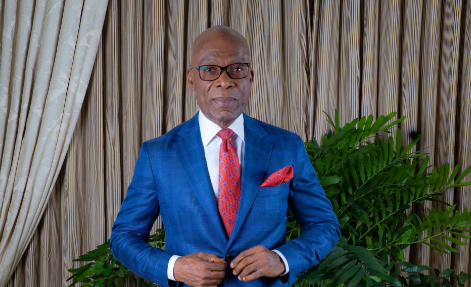Leo Stan Ekeh: “You Need Tinubu, Obi & Atiku Combined to Succeed as an Entrepreneur in Nigeria”
To build a successful business in Nigeria, you need more than just innovation—you need the combined strengths of Tinubu, Obi, and Atiku. That’s the message from Africa’s most decorated tech...

To build a successful business in Nigeria, you need more than just innovation—you need the combined strengths of Tinubu, Obi, and Atiku. That’s the message from Africa’s most decorated tech entrepreneur, Leo Stan Ekeh, during a recent mentorship session in Ikoyi, Lagos.
Table Of Content
Speaking to a group of young business leaders, the Zinox Group Chairman offered a compelling and practical blueprint for entrepreneurial success in Nigeria’s complex economic terrain.
“To survive and thrive as a Nigerian entrepreneur, you need Tinubu’s capacity and courage, Atiku’s determination and fairness, and Obi’s humility and frugality,” Ekeh said.
Breaking Down the Entrepreneurial Formula
In a country where entrepreneurs face shifting policies, tough infrastructure, and intense market pressure, Ekeh drew inspiration from three of Nigeria’s most influential political leaders:
🧠 Tinubu: Strategy, Capacity & Bold Leadership
Ekeh praised President Bola Ahmed Tinubu for his resilience, political foresight, and ability to build strategic coalitions. From surviving the 2003 PDP wave as Lagos governor to declaring “Emi Lo Kan,” Tinubu exemplifies audacity and long-term planning—qualities Ekeh says are essential for entrepreneurs navigating uncertainty.
“Tinubu wasn’t the richest or the most brilliant, but he had the courage to claim his turn,” Ekeh noted. “Entrepreneurs must have the same mindset—declare your place in the market and build capacity.”
💪 Atiku: Bravery, Fairness & Persistence
Citing former Vice President Atiku Abubakar, Ekeh emphasized tenacity and fearlessness in the face of bureaucracy and systemic challenges. Atiku’s legal battles during his time in office—and his refusal to give up on democratic reforms—mirror what business owners must often endure.
“Entrepreneurs must stand firm against unfair policies and keep pushing forward, no matter how hard the system pushes back,” Ekeh advised.
🤲 Obi: Humility, Prudence & Moral Clarity
According to Ekeh, Peter Obi’s disciplined, ethical leadership style holds key lessons for startups. Obi’s frugality and spiritual values reflect the importance of ethical business, cost control, and long-term sustainability.
“Credibility is credit-worthy,” Ekeh said. “If your business has integrity, investors will come.”
Entrepreneurship in Nigeria: Not for the Faint-Hearted
Ekeh knows the terrain well—he pioneered digital publishing in Nigeria, launched the country’s first internationally certified computer brand, and built one of Africa’s most respected tech conglomerates.
Still, he admits the journey came with persecution, blackmail, and resistance.
“Success will attract enemies, but stay focused. Nigeria rewards bold, ethical, strategic entrepreneurs.”
The Bottom Line
Ekeh’s powerful analogy underscores a deep truth: entrepreneurship in Nigeria requires a rare combination of traits—strategic brilliance, relentless tenacity, and moral discipline. With these, entrepreneurs can survive the volatility and harness Nigeria’s vast potential.
“To succeed here, you must be a tactician like Tinubu, a reformer like Atiku, and a moral visionary like Obi,” Ekeh concluded.
For aspiring entrepreneurs in Nigeria, the message is clear: learn from the nation’s political heavyweights—not just for politics, but for business survival and excellence.








No Comment! Be the first one.